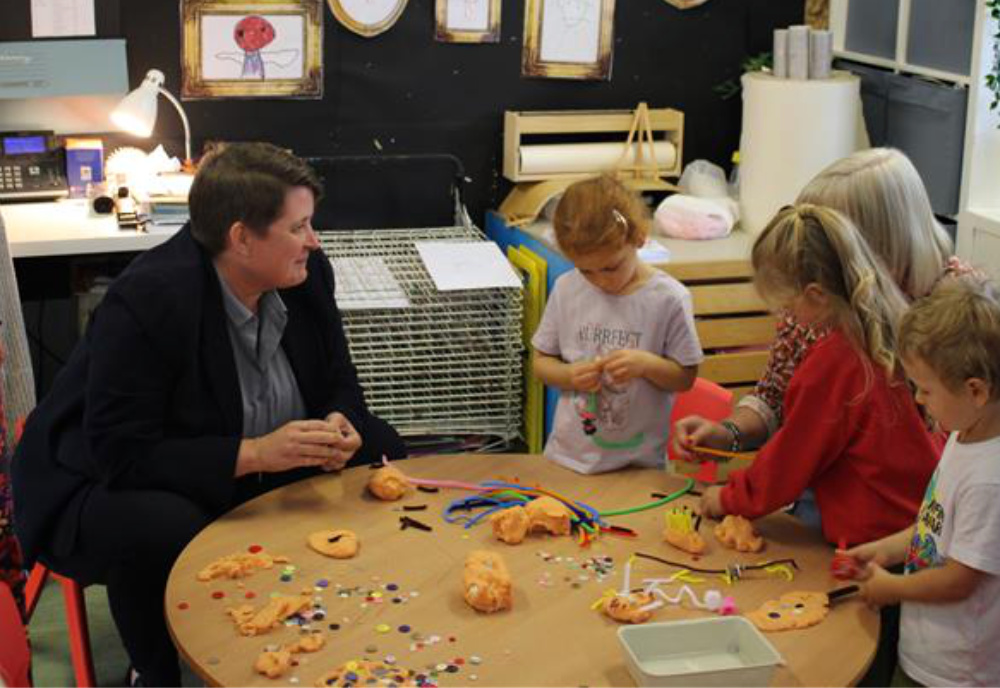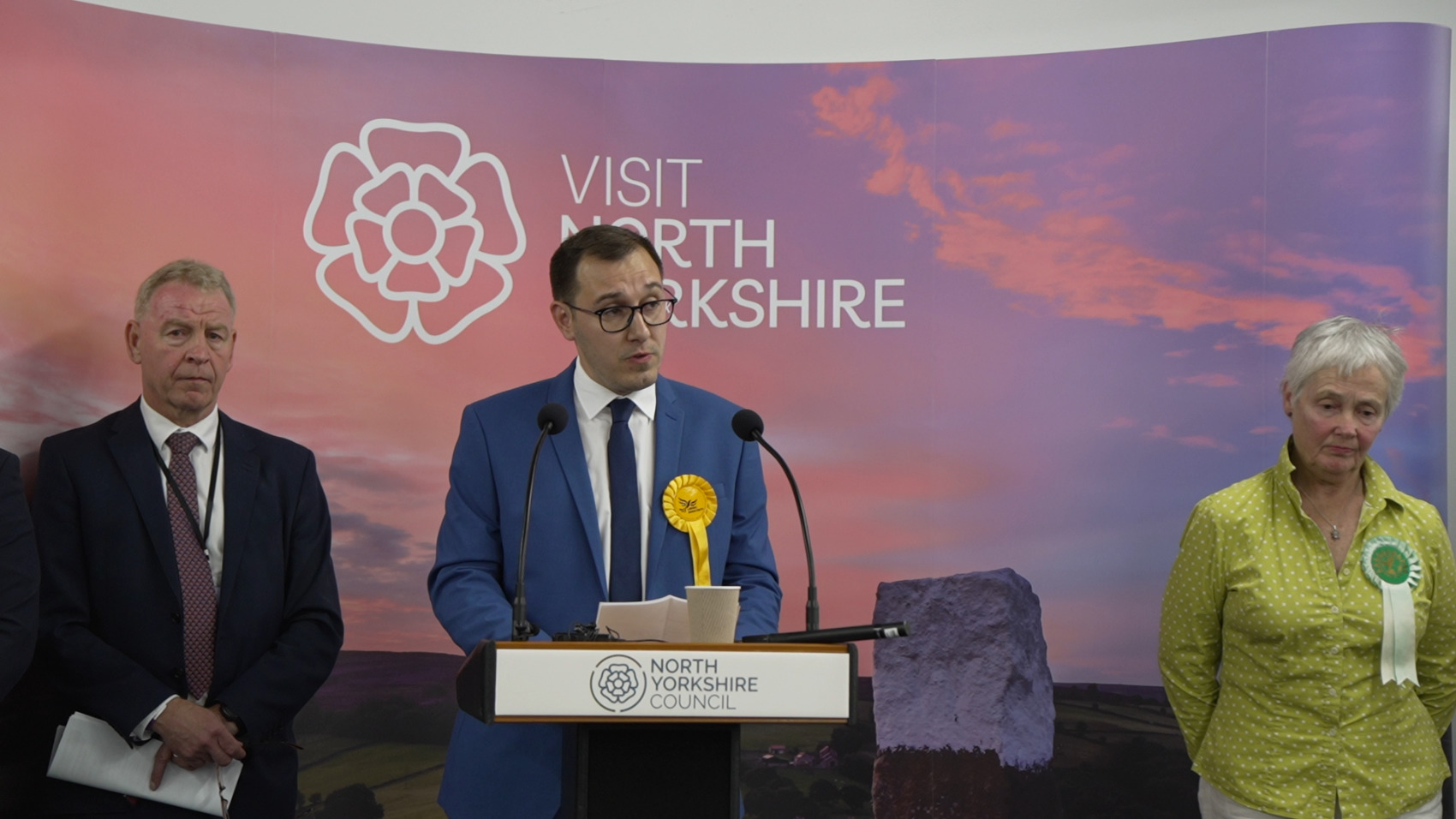- 52,878 children across Yorkshire and the Humber are now using government-funded childcare
- 530,000 are in places nationwide
- Families can save up to £7,500 a year per child through the 30 hours free
- 466 new school-based places open in Yorkshire and the Humber since the start of term
These nurseries are based on school sites. This makes drop-offs and pick-ups easier and helping children familiarise themselves with a school setting.
Concerns from private nurseries
- Funding: Ensure the funding for free places actually covers the real cost for providers
- Workforce: What is being done to address staff shortages and improve pay and conditions in early years.
- Access & Inclusion: There needs to be a guarantee that children, with SEND or in rural areas, can access their entitlement.
- Quality: With expansion, how will quality of provision needs to be maintained, not just numbers.
- Policy Direction: The private sector questions why the push is towards schools rather than supporting the existing private and voluntary sector.
There is a gap in expectations from parents vs what a nursery can deliver. As operating costs rise, many nurseries can’t cover the actual costs of the nursery place with the government provided funding through this scheme.
This scheme could force nurseries out of business through creating an imbalance in the market – to a large degree it sets the pricing structure for a nursery. Many settings are left looking at what is included in funded hours, and what could, or should, be charged separately, such as additional fees for dinners, or materials.
We had interview time with Parliamentary Under-Secretary of State (Minister for Early Education), Olivia Bailey, and put a number of questions to her.
Do you have any wider metrics, as this isn’t just about getting children into childcare, it’s to help people back into work?
Parliamentary Under-Secretary of State (Minister for Early Education), Olivia Bailey said:
The first thing to say is, just very briefly, you know, what we are showing today is that we have massively exceeded the targets that we’ve set for ourselves on both the expansion of childcare and also the delivery of school-based nursery places, which we are really proud of and shows that you know this is a government that’s not just making promises but is delivering and exceeding on them.
And look, yes, on the benefits, there are a range of benefits from the expansion in childcare.
First of all, obviously, there’s the kind of just costs for family benefit.
We think that the expanded childcare entitlement is going to save families seven and a half thousand pounds per year per child.
It also obviously does means families can get back into work or increase their hours at work. And also, crucially, it’s really important to help support children be ready for school.
We have set in our best start-in-life strategy a target for record numbers of children being ready for school by the end of this Parliament, and so this is another important step towards achieving that goal.
And on that kind of note of getting children ready for school, I know there’s been a bit sort of a big push, probably for a number of years, really, to raise the educational sort of standard of the nursery staff, like early learning degrees.
How will you maintain the quality of provision with this expansion?
Olivia Bailey said:
Quality is absolutely crucial to our mission in this space, and in our best start-in-life strategy, that’s a really core part of what we’re talking about.
That’s about the staff and the training of staff. We have got an ambition that we would like to see one, at least, early years, trained teacher in every setting – we’re also boosting the number of staff that we have.
We’ve got retention payments, for example, for staff in a disadvantaged area.
We’re going to have incentive payments to recruit staff, and we’re also taking steps around Ofsted to increase the frequency and quality of their inspections.
The quality is absolutely critical. But, anybody who’s had a child in a nursery knows how fantastic the staff are.
And I just want to say a big thank you to all the wonderful people who work in our childcare and early year settings because they give our young people such a great start.
And this government’s determined to have their backs as well and ensure that they’ve got the opportunities for progression and a great career that we know that the working in early years can provide.
Are you looking at the recruitment training specifically at the moment, or is that down the line?
Olivia Bailey said:
Yeah, absolutely. It’s something that’s a core part of our strategy and core part of what we’re working on.
And as I mentioned, we have got this incentive payment coming later this year for recruitment of early years teachers.
We have got this retention payment for early years teachers working in more disadvantaged areas, so it’s obviously something that’s at the heart of what we’re doing.
How do you measure the wider benefit? Are there any sort of stats? Is it in-part, spend here to spend less elsewhere, such as benefits payments ?
Olivia Bailey said:
This is about we’ve said from WordGo that we want to focus on early years, and what we’re doing today is demonstrating that we’re putting our money where our mouth is, we’re delivering for children to make sure we get record numbers of children ready for school, and also, crucially, to put more money in the pockets of hard-working families by enabling them to save money on the childcare that they’re paying for, but also boosting their incomes by being able to work more hours. So, across the board, that’s the aim of that policy, really.
£7,500 per child per year, which is more than twice what your weekly shop would cost over the course of a year.
So, it’s enough to pay for a couple of holidays. It’s a huge amount of money that’s going to make a really big difference to families. And maybe just one last sort of question then.
The private sector is sort of quite nervous about this, and see as this as support for the nursery provisions in schools, rather than themselves.
Olivia Bailey said:
There is a convenience of being able to drop your trust off in the same place if they’re at school and in the nursery is fantastic.
And also, the transition through into reception class and onwards can be eased. But we’re really, really clear that school-based nurseries are, in addition to the fantastic provision that is being provided in the private sector.
And, of course, there has been a huge expansion in the number of private, voluntary, and independent providers as well. So, you know, I think there’s 5,800 more providers in the private sector this year than last.
So, you know, this is about all of this working together, and we’re hugely grateful and supportive of the wonderful private sector who do such important work to get our children ready for school. And I think they need to hear that because I do know a few that work in this area and they feel a bit hard not to comment on.
The then Prime Minister, Rishi Sunak and Gillian Keegan, Education Secretary visited Harrogate in August 2023, so it is good to see consistencies between parties.
Olivia Bailey said:
I think one thing I would say about this government is we inherited lots of things that were kind of big words, but without really a plan to deliver them.
And what we’re showing today is that this government’s getting on with the job of actually delivering this and delivering for families and parents.
Education Secretary Bridget Phillipson said:
When we launched the 30 hours childcare expansion at the start of September, we said around half a million families were on track to benefit. Today’s figures show we have gone even further.
It is fantastic to see our Plan for Change delivering for families – helping them save up to £7,500 a year per child on childcare costs and supporting parents to balance work and home life.
This is real cost-of-living relief that families can feel in their pockets today.As the next bidding round of school-based nurseries kicks off today, we are not slowing down. This government is giving hard-working parents the support they need and ensuring every child
gets the best start in life.
Increasing access to quality early education and making life easier for families sits at the heart of the government’s Plan for Change. Funding for early years entitlements is set to rise to over £9 billion next year to help more parents, especially mothers, balance work and family life.
And through the Best Start in Life strategy, backed by £1.5 billion, tens of thousands more children – a record share – will be school-ready at age five, tackling long-standing barriers to early education and helping teachers focus on teaching so every child can thrive.
Schools across the country are being urged to consider applying for the next round of funding for 300 more school-based nurseries which opens today, backed by £45 million to deliver up to 7,000 new places for local families.





